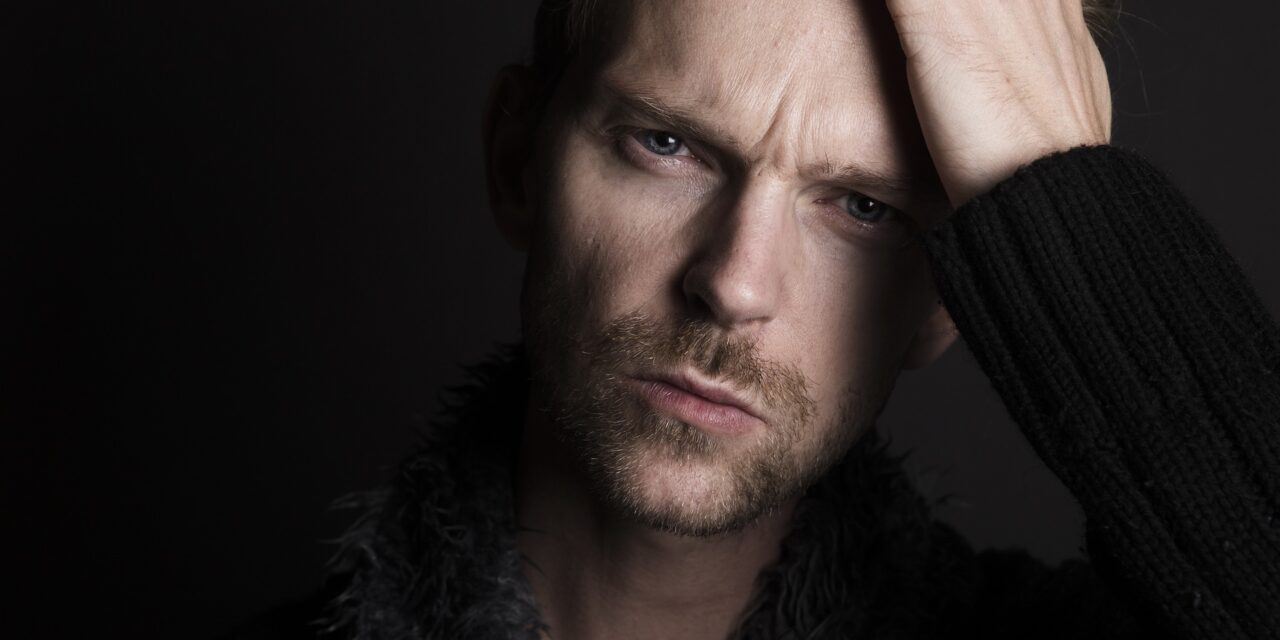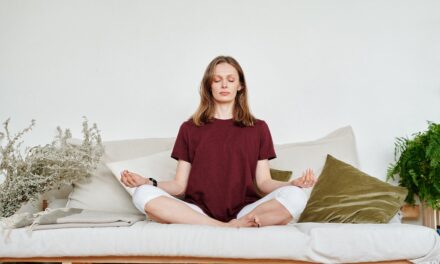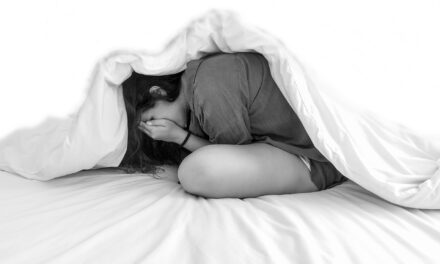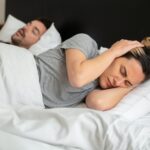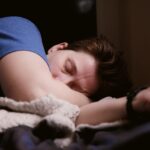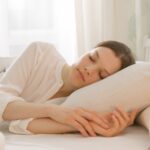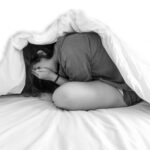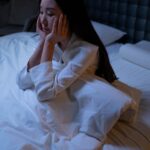Having anxiety can be debilitating, but many people think anxiety only affects you when you are awake. This is not the case. Are you having trouble sleeping? If so, one thing you may not have realised is that anxiety may be the reason you are not sleeping. You may have even made the connection between lack of sleep and anxiety, leaving you wondering how to fall asleep fast with anxiety.
People with anxiety often have trouble sleeping because they find it difficult to switch off at night, and this can start to have a negative impact on their day to day activities.
Anxiety affects us all in different ways. Some have minor anxiety, and others have severe anxiety, but one of the things that we all have in common is overthinking. Sometimes this can be obsessive, making it hard to fall asleep at night.
In this article, we will tell you everything you need to know about falling asleep when you have anxiety, as well as give you some helpful coping strategies to make falling asleep quicker and easier.
What to expect from our article
What is anxiety?
Anxiety is a term used to describe a feeling of worry or fear. It’s an uneasy feeling you get when you think something bad is about to happen. Some people experience these feelings all of the time, and for others, they can come in waves. Everyone has experienced anxiety at some point in their lives, whether it was the first day of school or walking into a room full of people you didn’t know. This kind of anxiety is normal and is usually based on a fear of the unknown. This type of anxiety disappears soon after the event is over, and the person is usually not affected by it for longer than the experience lasted.
For people who suffer from an anxiety disorder, it can be very difficult to live a normal life because these feelings of worry and fear are totally out of your control, and even when the event is over the anxiety stays.
What are the symptoms of anxiety?
The symptoms of anxiety can be different from person to person depending on the severity of the anxiety. People with anxiety usually experience;
- Feeling worried, nervous or restless
- Trouble concentrating on daily tasks
- Trouble falling asleep or staying asleep
- Heart palpitations or dizziness
- Symptoms similar to irritable bowel
- Sweating and increased heart rate
- Breathing rapidly (hyperventilation)
How long should it take to fall asleep when you have anxiety?
There really isn’t a set time scale for falling asleep when you have anxiety. Some people can fall asleep as soon as their head hits the pillow, but they wake up early hours in the morning and have trouble getting back to sleep. Others can lay there for hours at a time before they actually manage to get to sleep.
On average, a person who doesn’t have an anxiety disorder will usually fall asleep within ten to twenty minutes of being in bed. People with anxiety find it difficult to switch off, and most of the time the anxiety is worse at bedtime. Thoughts can become intrusive and almost obsessive, and you can’t stop thinking about the things that worry you. Over and over, questions get repeated, and even when you know these feelings are irrational, you cannot stop them.
If the day has been a particularly stressful one or an event happened that was out of your control, you question everything—was it my fault? What could I do to avoid it? Will they blame me? What can I do next time? That quiet time when you are supposed to be sleeping is when the brain tries to make sense of everything that happened that day, last week, or even ten years ago. It really doesn’t matter; timescales don’t matter when it comes to anxiety, and getting to sleep is going to be the last thing on your mind.
What can you do to help you get to sleep quicker?
The first thing to do is seek help from a medical professional. There may be underlying causes for the anxiety, which they can help you with. If the anxiety is not caused by an underlying health condition, they may be able to give you a referral to a counsellor or mental health professional who can discuss what options are available to you.
Treatments for PTSD based anxiety
There are treatments available that can be effective at treating anxiety and one of those treatments is EMDR (Eye Movement Desensitization and Reprocessing). EMDR was initially developed in 1987 to be used as a treatment for PTSD (post traumatic stress disorder) but it has also been found to be effective at treating other forms of anxiety.
EMDR is carried out one to two times per week for a total of around 6–12 sessions. The theory behind EMDR is to revisit the past trauma that triggered the anxiety. When using rapid eye movements and revisiting past events, you can start to process and understand the emotions, thoughts, and feelings that occurred at the time of the traumatic event.
When we experience trauma, we sometimes bury it deep inside without ever processing it correctly. When these memories are triggered by certain events, we can experience anxiety. EMDR therapy focuses directly on the traumatic memory. Changing the way we store these memories enables us to reduce or eliminate the trauma, which reduces the symptoms of anxiety.
How to fall asleep faster?
There is no quick fix when it comes to fixing sleep issues, but in this section, we will cover things that we have found useful while trying to improve our sleep due to anxiety, and hopefully, our tips will also be able to help you get a good night’s sleep.
Create a bedtime routine
This is probably the most important part of getting to sleep faster, and it’s something we should make an effort to do on a daily basis. It starts with a wind-down around 2 hours before bedtime. I know it can seem difficult when we lead such busy lives, but I promise it does help. Choose a time that you are comfortable with; that will give you enough time to complete your new bedtime routine.
Turn off the tv and devices
This is going to be the most important part of your new bedtime routine. TV acts as a stimulant, and this can keep your brain busy even after you fall asleep, especially if you have been watching an edge-of-your-seat movie or even listening to the news. These types of things can trigger anxiety and induce nightmares, which can affect the quality of sleep as well as your ability to get to sleep.
The light from the TV or devices can block the natural production of melatonin. Melatonin is produced to help us go to sleep; if your body doesn’t produce melatonin, you won’t sleep very well. Our sleep cycle works naturally with the time of day; we are supposed to wake up when it is light and go to sleep when it is dark. If we extend the day with artificial light from screens, we will have trouble getting to sleep and staying asleep.
Run yourself a bath or have a shower
When we go to sleep, our body temperature drops, so taking a bath or a shower can help speed up the process. You can also use some lavender bath products to help you relax and calm your mind. We also want to keep the bedroom cool. Adding a heat source can interrupt the body’s natural cooling process, which can affect your sleep. Installing blackout blinds or curtains will also be beneficial to keep heat out during the warmer months, but they will also help to keep the room nice and dark.
Offload all your worries
Writing in a journal will help you unload all of the things that have been bothering you during the day. If we don’t offload these thoughts, they can plague us at bedtime, stopping us from getting quality sleep. I find letter writing when I’m having a bad day to be very therapeutic, so it goes without saying that writing in a journal can have the same effect.
Meditation
Meditation can help to release all of the built-up tension and help you relax before bedtime. Put on some calm and relaxing music and practice breathing techniques to help you stay calm. You could even ask your partner to give you a massage to help relax your muscles. One of the things people with anxiety do is keep their bodies tight, which tells the body to stay alert. Learn to relax your muscles, drop your shoulders, and allow your body to go floppy; these are all internal signals that your body is calm, relaxed, and ready for sleep.
Empty your mind
This has to be the most important step in your new sleep routine. It is the one thing I’ve found that works almost 90% of the time to help me get to sleep faster, and hopefully, this trick will also work for you too. What I do is completely block out all thoughts from my mind except for two things. I visualise the colour black, and I repeat the word black over and over in my mind until I can think of nothing else but the colour and the word black. If I am having trouble getting to sleep, this usually does the trick, and I fall asleep within minutes. When you have anxiety, your brain doesn’t know how to switch off and allow you to go to sleep. This is kind of like giving the brain a reboot, and it does work.
For more information on getting better sleep, see our article on sleep tapping.

